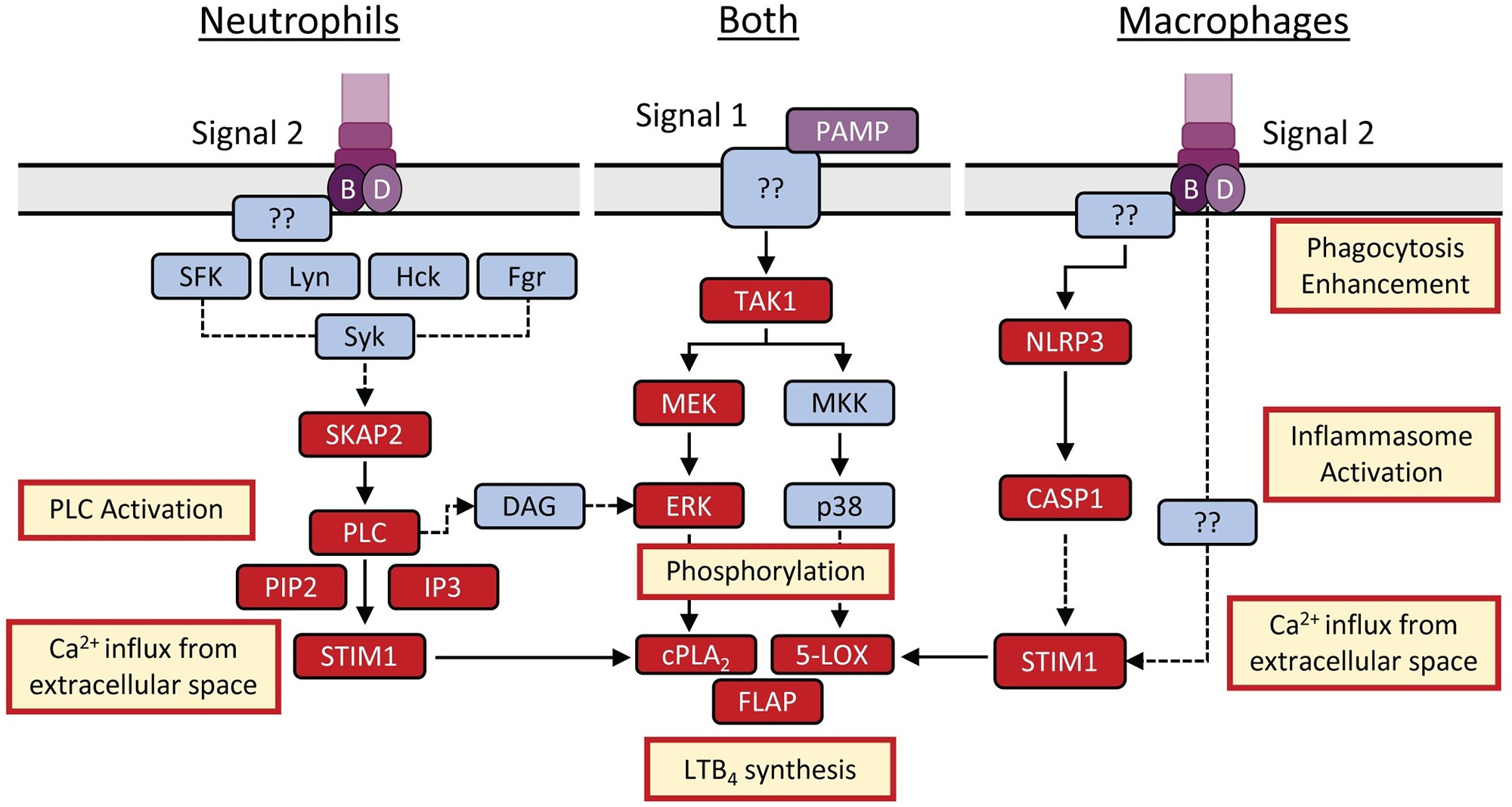New Paper on Inflammatory Lipids and Plague
OCTOBER 19, 2024
As reported today in PLoS Pathogens, we discovered that the host signaling pathways required for leukotriene B4 (LTB4) synthesis — essential for timely inflammation in response to invasion by bacterial pathogens — differ between neutrophils and macrophages. The data reveal important differences in how immune cells respond to infection and provide new insights into how Yersinia pestis manipulates leukocytes to evade immune recognition.
Using these data, we developed a working model (below) showing a differential response to the type 3 secretion system between neutrophils and macrophages needed for LTB4 synthesis. Specifically, the SKAP2/PLC signaling pathway is a key component for a rapid response in neutrophils while the NLRP3/CASP1 inflammasome is more important in macrophages.
Interested in understanding how we developed this model? Read the paper here.
Congrats to Amanda, Leo, Ben, and Kaitlyn in the Lawrenz Lab, and big thanks to our collaborators Dr. Bodduluri and Dr. Uriarte!
